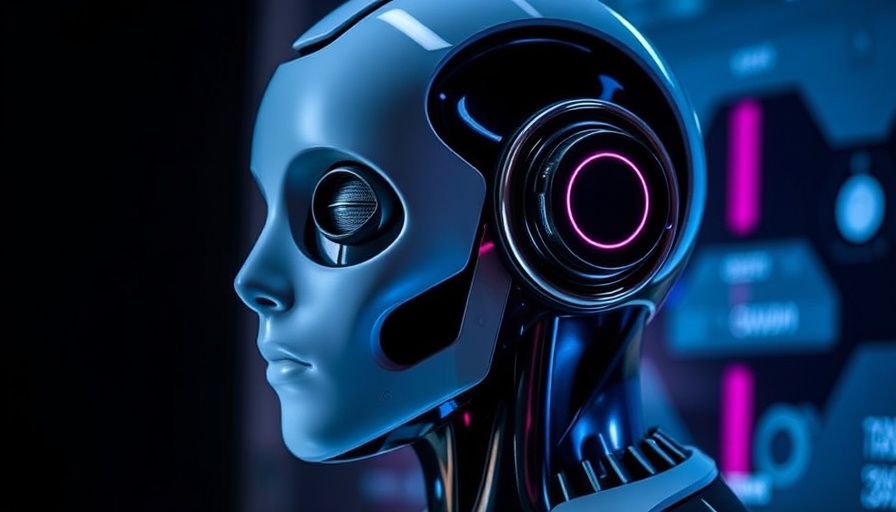
Are AI Agents the Future of Collaborative Work?
As artificial intelligence continues to evolve, the concept of AI becoming a true coworker is not as far-fetched as it once seemed. Currently, leading tech CEOs predict that by 2025, we could witness a significant shift from traditional AI systems like ChatGPT, which primarily respond to user inquiries, to AI agents capable of executing complex tasks autonomously. This shift could redefine workplace dynamics across various sectors, revolutionizing how we approach tasks that require specialized knowledge and cooperation.
What Exactly Are AI Agents?
AI agents are autonomous systems designed to undertake specific tasks with minimal human intervention. These systems can analyze vast amounts of data, make informed decisions, and coordinate with other specialized agents to tackle multifaceted projects. By operating with increased autonomy, AI agents promise to perform tasks at a scale and speed that far exceeds human capabilities.
Real-World Examples of AI Collaboration in Science
Delivering on this promise, Google's Gemini 2.0 platform has introduced an innovative AI co-scientist that emulates the scientific method. The system comprises a suite of specialized agents—including Generation, Reflection, Ranking, Evolution, Proximity, and Meta-review—which independently collaborate under the supervision of a primary supervisor agent. This collaborative model has demonstrated remarkable success; for example, it has identified potential drug candidates for treating severe ailments that have later been validated through rigorous laboratory experiments.
A similar collaborative AI model has been showcased in the Virtual Lab at Stanford and the Chan Zuckerberg BioHub, where a principal investigator AI orchestrates a team of specialized AI scientist agents in tackling significant health challenges, such as developing novel nanobody designs for new variants of SARS-CoV-2. This type of teamwork not only showcases the versatility of AI agents but also emphasizes the importance of critical review agents who safeguard against biases and inaccuracies, thus ensuring higher reliability in the results produced by these AI systems.
The Future Landscape of AI in Various Industries
The implications of implementing AI agents extend far beyond the realm of scientific research. For instance, there is a growing potential for collaborative AI agents in business environments. Imagine a scenario where AI agents work alongside human employees to support decision-making processes. They could assist in analyzing data trends, streamlining operations, and managing resources efficiently—offering substantial improvements in productivity and operational effectiveness.
Equally, in education, AI agents could serve as digital co-teachers, perfectly equipped to enhance the learning experience by drawing on their specialized expertise to aid both educators and students. Creating a custom-tailored curriculum would not only promote individualized learning but also enable students to grasp complex concepts more readily.
Critical Oversight: The Role of AI Review Agents
A pivotal aspect underscored by recent studies is the necessity for AI agents dedicated to reviewing and critiquing the outputs generated by their peers. This feedback loop is integral in mitigating potential errors and biases, thereby promoting a culture of accuracy and thoroughness in AI-generated results. By enforcing higher standards through critical oversight, organizations can confidently harness AI technologies, minimizing risks typically associated with machine learning biases and inaccurate data interpretations.
Looking Ahead: Will AI Agents Become Integral to the Workforce?
As we look towards 2025, the transformation of AI from simple task-oriented systems to more competent collaborative agents appears imminent. However, certain challenges remain, especially regarding regulation and public skepticism surrounding AI’s capabilities. Many individuals may harbor fears about job displacement as these intelligent systems become more integrated into the workforce. Nevertheless, as AI continues to advance, its role as a partner rather than a replacement may redefine the future of work, allowing humans to focus more on creativity and complex problem-solving.
As all eyes turn towards these developments, organizations should engage in proactive conversations about the ethical implications and potential benefits of incorporating AI agents into their workflows. By doing so, businesses can not only enhance their operational capacity but also contribute to a more informed understanding of the technology's role in shaping our collaborative futures.
In conclusion, preparing for the integration of AI agents in workplaces is a conversation that we should start now. Engaging with stakeholders and policy-makers will ensure that companies are ready for the immense potential—and challenges—these agents present.
 Add Row
Add Row  Add
Add 




 Add Row
Add Row  Add
Add 

Write A Comment